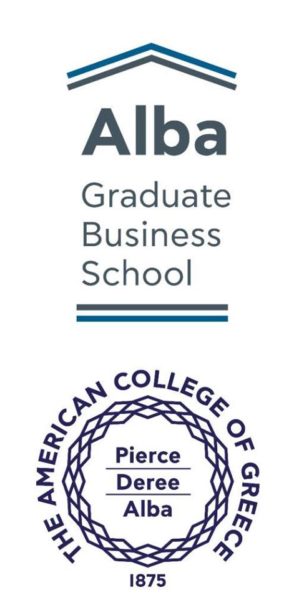Are you coming to the end of your university degree and thinking about deepening your expertise in a particular area? Or have you worked for a few years and realised you need to upskill? Then, a Master’s degree could be an excellent next step. But your first step after deciding to do a Master’s is to decide which degree you’re going to complete; so, what is an MSc Masters?
There are commonly two kinds of Master’s degrees: an MSc and an MA. While both degrees confer the same certification (a postgraduate degree), they differ in content, learning style, and examinations.
Crucially, some subjects can be studied as an MA or an MSc Masters, so it’s essential to know the difference between them before you apply. So, let’s dive in.
What is an MSc Masters?

MSc stands for Master of Science. You might see the abbreviation MS or ScM to describe a Master in Science.
It denotes a one or two-year postgraduate degree usually focused on STEM subjects like science, mathematics, and IT. However, you’ll also find that some social science subjects like sociology and psychology are offered as MSc degrees.
Like most other postgraduate degrees, an MSc degree will usually culminate with an extensive research project, where students have to write a lengthy thesis or conduct some independent research.
MSc Masters and MA: What’s the Difference?

An MSc is usually contrasted with an MA degree, a Master of Arts.
While an MSc is usually science-focused, an MA is a humanities-focused postgraduate degree. You’ll find MA degrees across a range of subjects such as literature, languages, theatre, and design.
There are also differences across teaching methods for these two degrees. An MSc Masters is more likely to include more taught classes, whereas an MA degree usually comprises more independent study periods.
While both degrees will end with a written thesis, an MSc degree typically uses traditional exams to assess students. An MA will usually feature coursework each semester but no sit-down examination.
Most importantly, you don’t always need to have studied a technical or scientific degree at the bachelor’s level to enter an MSc degree. Some Master’s degrees in very technical subjects (like mathematics and physics) will require students to have studied the subject before—most likely as a Bachelor of Science—but other MSc subject areas don’t carry this requirement.
Should I study For an MA or MSc?
Although a humanities degree will often be an MA and a scientific/STEM degree an MSc, the distinctions are not always clear-cut.
For example, technical universities, known for their scientific research and teaching, can still offer MA degrees. These are often subject areas at the precipice of both the humanities and science, such as management, political science, and the social sciences.
Take ETH Zürich, for example. Although many of their degrees are MSc, they offer MAs in Comparative and International Studies, History and Philosophy of Knowledge, and Science Didactics.
You should also know that, depending on the university, some subjects may be offered as an MSc or an MA. Here are some examples.
Mathematics

You might expect mathematics to be taught as a Master of Science, but that’s not always the case.
This is certainly true at many of Europe’s top universities for mathematics. Imperial College London is ranked one of the top 10 universities in the world for mathematics, and all of its maths degrees are offered as MSc Masters.
Student Review
I have highly appreciated my time spent at Imperial College London thus far, studying Mathematics for this first year has been an enriching experience. Imperial’s atmosphere boasts a strong balance between a relaxed and intense working environment, in order to bring the best out of every student. This is perhaps most shown through how much freedom each student has to complete their work on time, to be able to work at their own pace, yet the standard of work is still maintained since sufficient help and support for exam preparation is given to students throughout the year. The facilities are incredible, for example the Imperial library of 5 floors is more than enough to accommodate all students’ needs for individual studying. Panopto is also used as a means of lecture recording across many subjects, allowing students to recap on learned material, which comes as a great aid to students who have fallen behind on lectures. My favourite part of Imperial has to be the sheer number of clubs, societies and projects available for students to take part in, as made aware during Fresher’s Fair – my personal highlight being taking part in EMW 2019 for Imperial’s Indian Society. I would highly recommend Imperial to any student looking to study a STEM course, especially Maths, since it really does allow you to reach your full potential.
By contrast, the top-ranked University of Edinburgh offers a Master’s in Mathematics as an MA degree. This four-year degree combines the bachelor’s curriculum of BSc Mathematics with additional courses in a humanities field according to the student’s preference.
You may see postgraduate degrees in mathematics further divided by the type of maths. For example, applied mathematics (applying mathematical principles to problems in physics, engineering, medicine, and more) is more likely to be taught as an MSc, whereas pure mathematics (the study of fundamental theories) may be taught as an MA.
Area Studies

Area Studies is a subject that lies at the crossroads of other subjects and can include aspects of anthropology, literature, language, statistics, and geography.
At the University of Oxford, all area studies degrees (such as African Studies and Japanese Studies) are taught as MSc degrees, not MA degrees. In contrast, area studies Masters programmes at the University of Amsterdam are taught as MA degrees.
Fundamentally, the MA or MSc designation changes very little about the degree. Both include a written thesis and may have opportunities to conduct research abroad or participate in study trips.
Student Review
I am lucky enough to study the MA in European Studies (Identity and Integration track) at the University of Amsterdam. I especially like and appreciate the flexibility of this master’s program, as I am able to combine the study of different historical periods, as opposed to simply focusing my studies on one particular period. Although I am obviously focusing on European topics, there is also the possibility to add some American-based topics as well, such as contemporary American history. I overall thoroughly enjoy this program and am especially grateful to the course coordinator, who has very kindly helped me a number of times throughout the past academic year.
Benefits of Studying an MSc

Technically, the only difference between an MSc and an MA degree is the degree content. As we’ve seen, the same kind of degree at different institutions may be offered as an MSc or an MA, depending on the university’s preference.
But if you’re using your postgraduate degree to access jobs in a particular industry or further academic study like a PhD degree, you might find that there are some benefits to studying an MSc over an MA.
So, some graduate research positions in the sciences may require you to have studied a particular type of postgraduate degree—say, a Research Master’s or an MSc.
Because an MSc degree is often focused on practical skills—for example, applying theories to the real world or conducting lab experiments—this kind of degree can help you practice important skills for future roles in STEM subjects.
Conclusion
Ultimately, the decision to study an MA or MSc degree will largely come down to the kind of subject that you want to study. If you plan on studying something in the humanities, chances are you will be studying for an MA degree. If you plan on doing something more practical or science-focused, it’s likely to be an MSc degree.
However, you may end up in a situation where you have to choose between two degrees in the same subject. In this case, have a think about your future career goals. Do you want to pursue additional research after your postgraduate? Do you want a practical career doing research?
Recent Posts

Over 40,000 international students enrol in South African universities every year, drawn by the unique culture of this African country and the ...

Studying in a major city can offer international students an incredible experience, from days spent exploring hidden cultural gems like museums and ...

Universities in Germany are known for their practical approach to teaching, giving students the skills needed for future jobs. Plus, international ...







